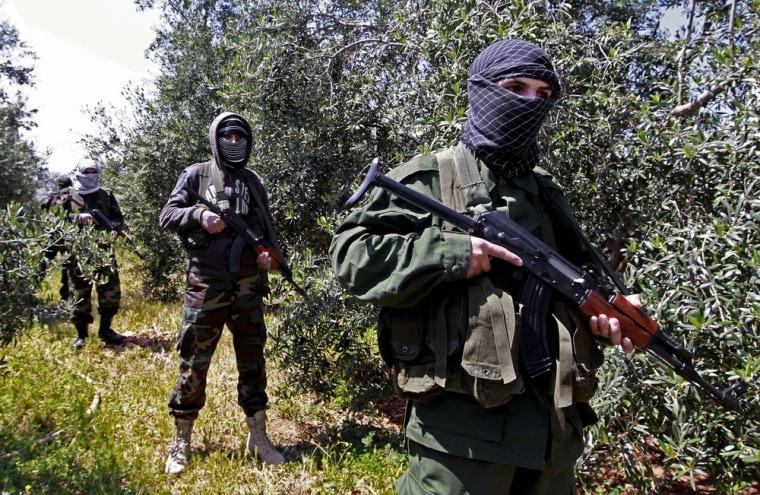
BEIRUT -- The leader of Lebanon's Hezbollah militant group said Tuesday that Syrian rebels will not be able to defeat President Bashar Assad's regime militarily, warning that Syria's "real friends," including his Iranian-backed militant group, were ready to intervene on the government's side.
Hezbollah, a powerful Shiite Muslim group, is known to back Syrian regime fighters in Shiite villages near the Lebanon border against the mostly Sunni rebels fighting to topple Assad. The comments by Sheik Hassan Nasrallah were the strongest indication yet that his group was ready to get far more involved to rescue Assad's embattled regime.
"You will not be able to take Damascus by force and you will not be able to topple the regime militarily. This is a long battle," Nasrallah said, addressing the Syrian opposition.
"Syria has real friends in the region and in the world who will not allow Syria to fall into the hands of America or Israel."
Hezbollah and Iran are close allies of Assad. Rebels have accused them of sending fighters to assist Syrian troops trying to crush the two-year-old anti-Assad uprising, which the U.N. says has killed more than 70,000 people.
Deeper and more overt Hezbollah involvement in the Syrian conflict is almost certain to threaten stability in Lebanon, which is sharply split along sectarian lines, and between supporters and opponents of Assad. It also risks drawing in Israel and Iran into a wider Middle East war.
Nasrallah said Tuesday there are no Iranian forces in Syria now, except for some experts who he said have been in Syria for decades. But he added: "What do you imagine would happen in the future if things deteriorate in a way that requires the intervention of the forces of resistance in this battle?"
Hezbollah has an arsenal that makes the group the most powerful military force in Lebanon, stronger than the national army. Its growing involvement in the Syrian civil war is already raising tensions inside the divided country and has drawn threats from enraged Syrian rebels and militants.
Nasrallah also said his fighters had a duty to protect the holy Shiite shrine of Sayida Zeinab, named for the granddaughter of Islam's Prophet Muhammad and located south of Damascus.
He said rebels have captured several villages around the shrine and have threatened to destroy it.
"If the shrine is destroyed things will get out of control," Nasrallah said, citing the 2006 bombing of the Shiite al-Askari shrine in the Iraqi city of Samarra. That attack was blamed on al Qaeda in Iraq and set off years of retaliatory bloodshed between Sunni and Shiite extremists that left thousands of Iraqis dead and pushed the country to the brink of civil war.
In recent weeks, government troops have overrun two rebel-held Damascus suburbs and a town outside the capital. They also have captured several villages near the border with Lebanon as part of their efforts to secure the strategic corridor running from Damascus to the Mediterranean coast, which is the heartland of the president's Alawite sect, an offshoot of Shiite Islam.
Related: